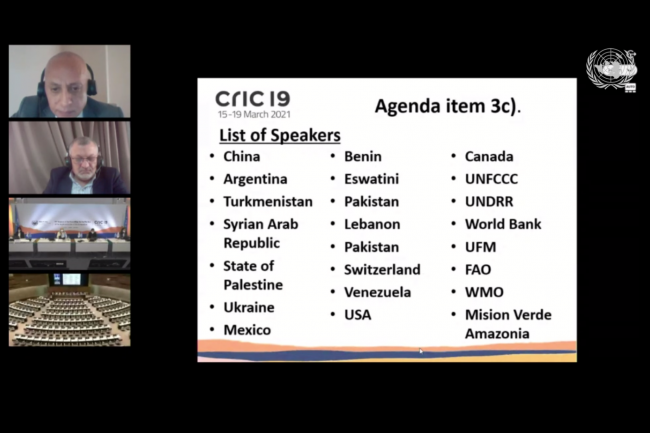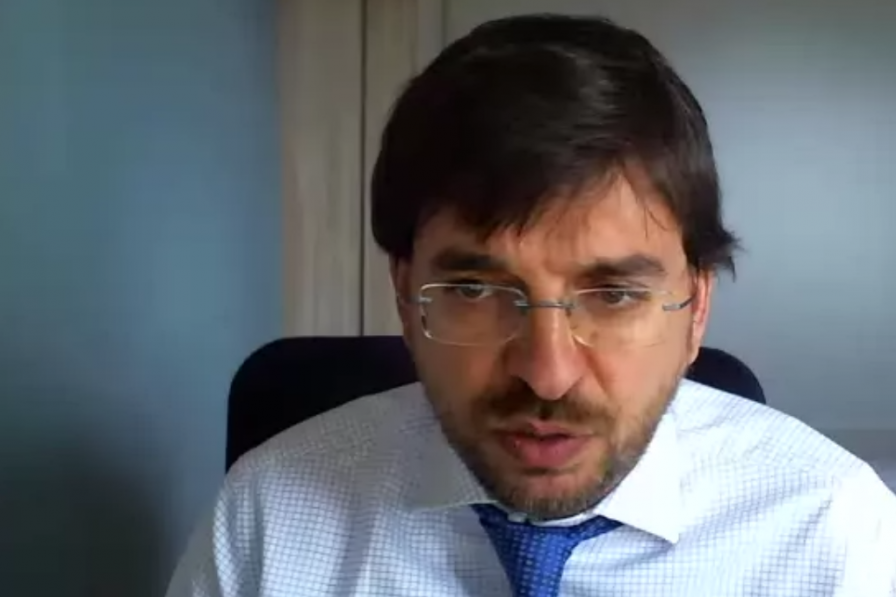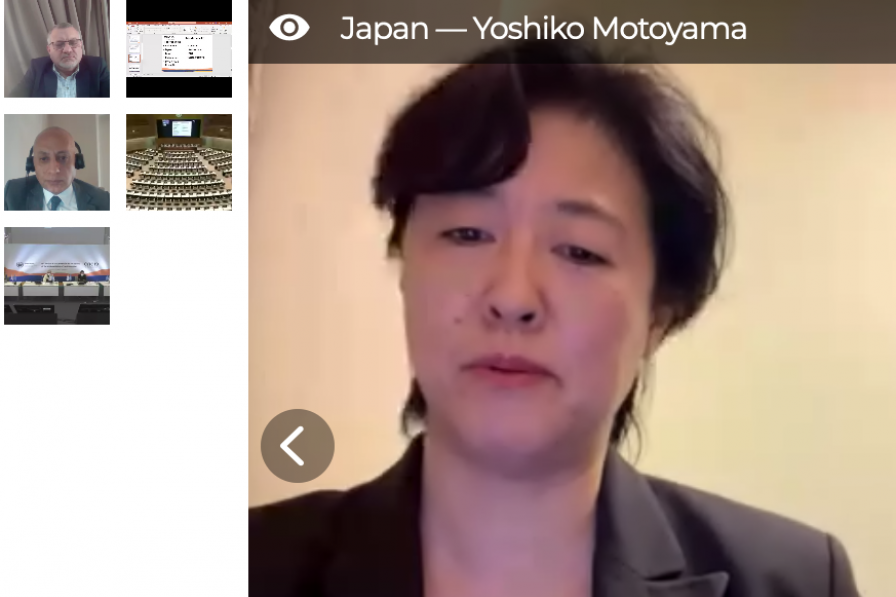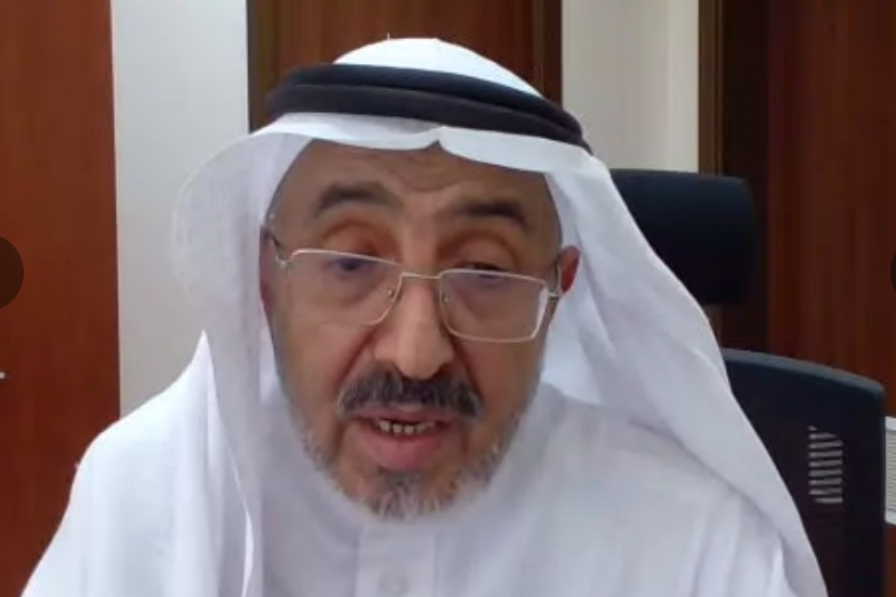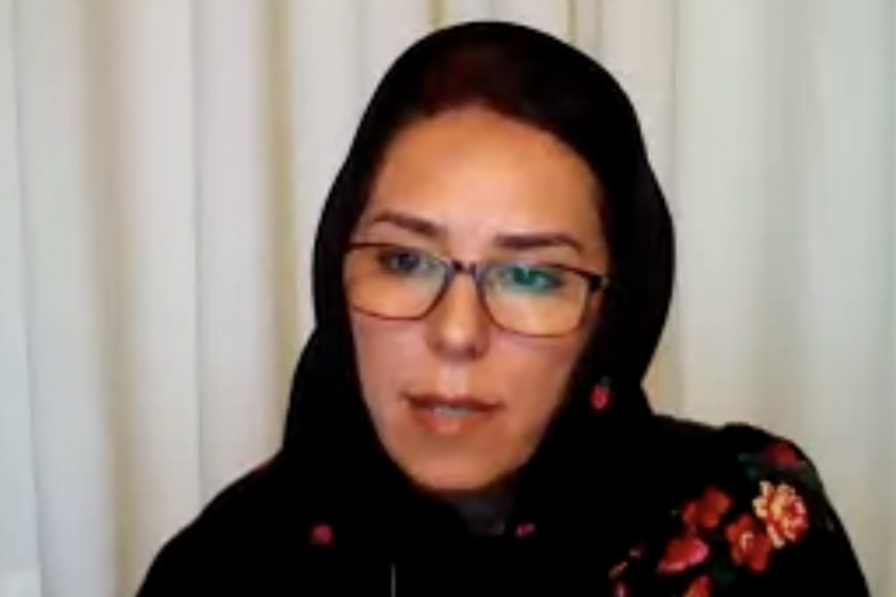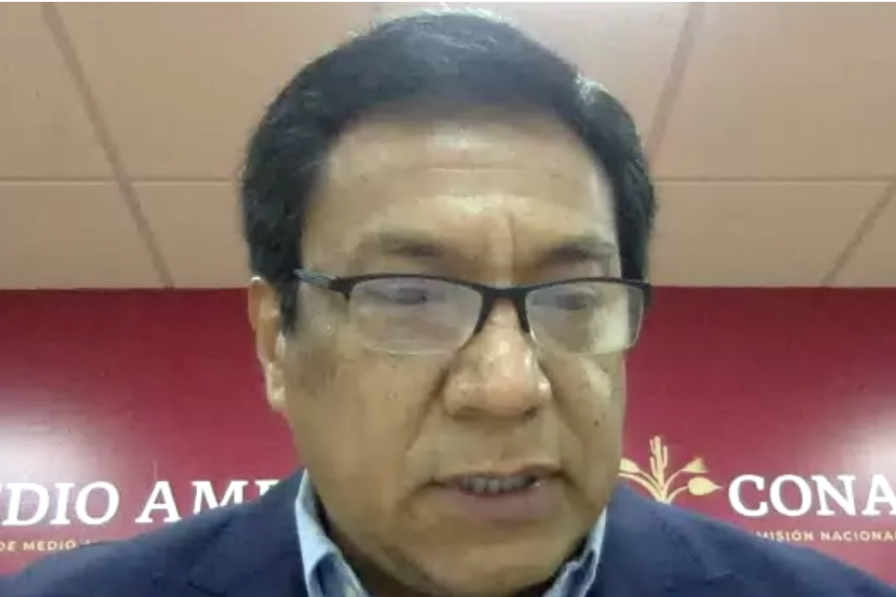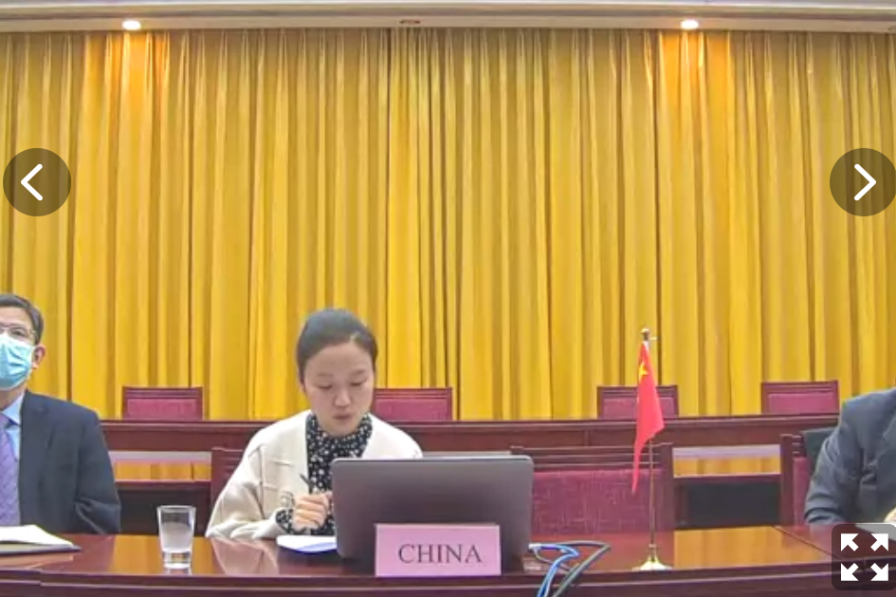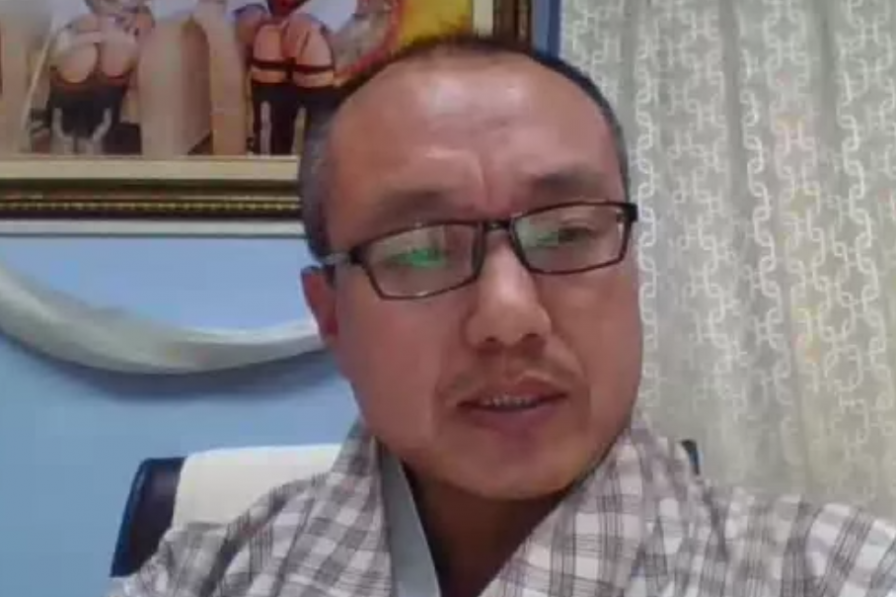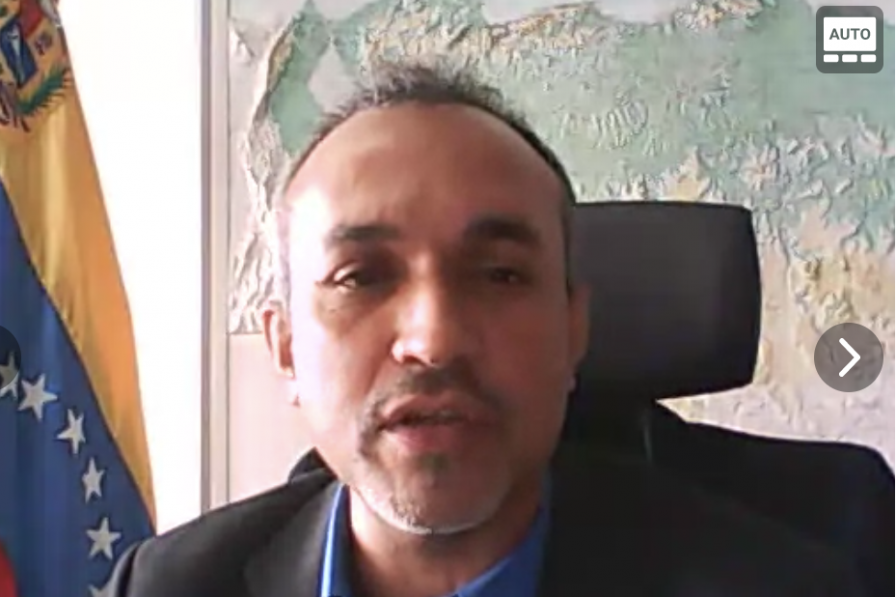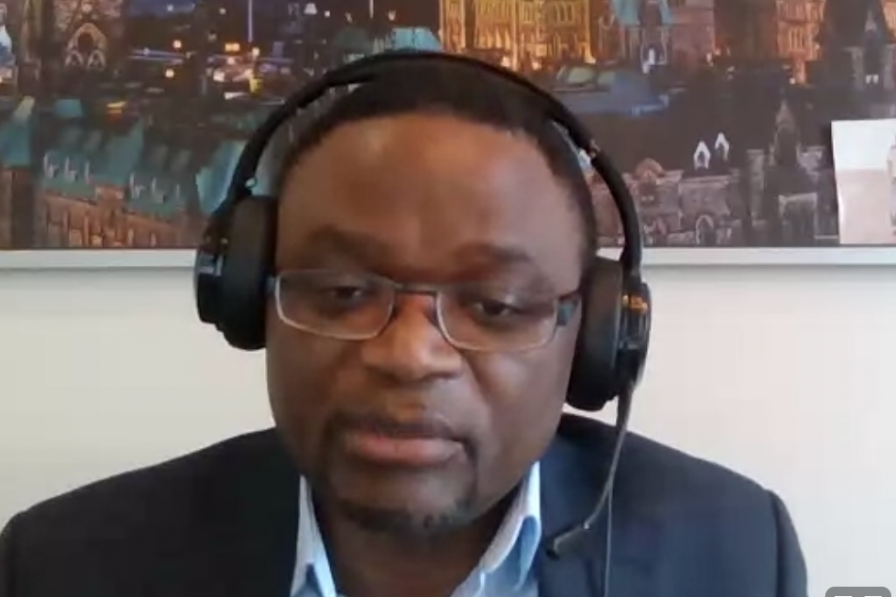On Wednesday, the Committee resumed discussion of the Land Degradation Neutrality (LDN) Fund. Many speakers called for a better regional balance in project selection, as well as linking local and national-level projects to regional and global best practices in landscape restoration. The Global Mechanism of the UN Convention to Combat Desertification (UNCCD), as well as the Fund Manager, Mirova, were requested to provide more guidance to countries at all stages of the project pipeline, and to ensure greater transparency in LDN project selection and Fund management.
CRIC-19 delegates expressed concern that pandemic-related trade restrictions could further delay already lengthy project pipelines. They requested clarification on risk management of ongoing projects, and whether any compensation for lost time and activities in the wake of the COVID-19 pandemic can be considered. Other issues raised highlighted the need to address possible greenwashing of projects, for instance by promoting monoculture in afforestation projects. In this regard, the Fund was advised to promote mosaic approaches to landscape restoration, and to build awareness among potential private investors about respecting environmental and social safeguards.
The session then began consideration of a Secretariat report on follow-up activities related to UNCCD policy frameworks on drought, land tenure and gender that were adopted by the 14th session of the UNCCD Conference of the Parties (COP 14). Parties broadly welcomed the three policy initiatives, but expressed concern about the loss of momentum due to the impact of the COVID-19 pandemic. There were calls for the Secretariat to take a more proactive approach in designing capacity building initiatives around the three frameworks, such as through greater use of online training formats to disseminate technical guidance to countries.
Other issues raised included the need to:
• adopt an intersectional lens to address discriminatory gender norms, roles and relations across all three policy areas;
• better leverage support from specialized agencies, such as the partnership with the Food and Agriculture Organization of the UN (FAO), in developing technical guidance on land tenure;
• ensure the full integration of the three policy frameworks in broader national policy processes, such as climate change adaptation, or agricultural planning;
• recognize national and regional specificities by pursuing the principles of “inclusion, appropriateness and flexibility” when applying technical guidance.
Drawing attention to the growing severity of drought across the African region, in part due to accelerating climate change and human-induced land degradation, many African delegates reiterated calls for a UNCCD Drought Protocol to initiate concrete actions and ensure “drought is given the seriousness it deserves.”
